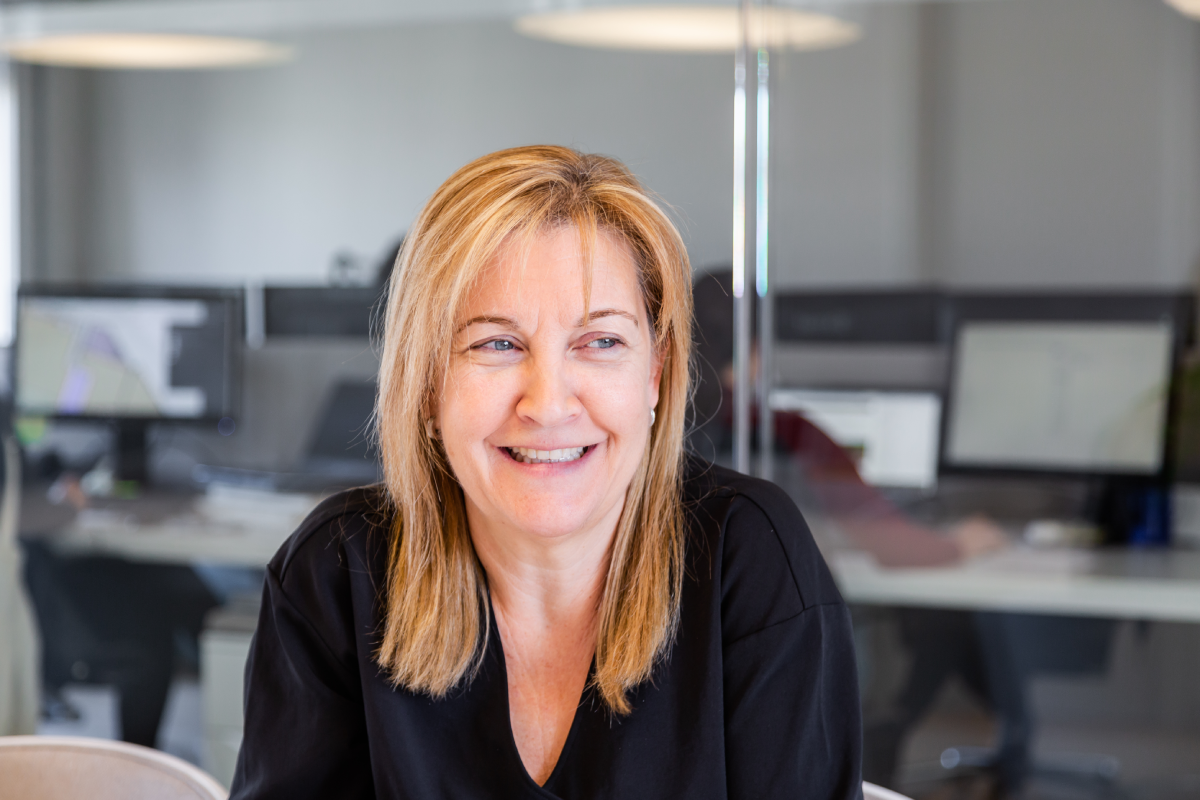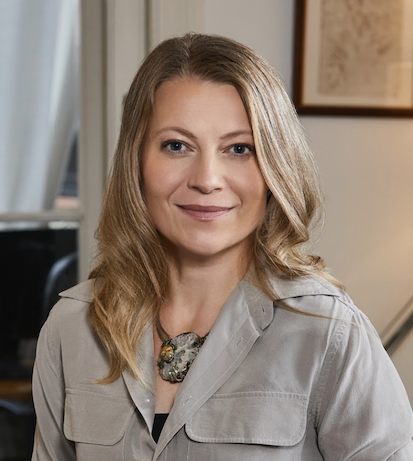L35: More than 50 years committing to an architecture at the service of the citizen

Luisa Badia, General Managing Partner, Architect
What is L35 Arquitectos?
L35 is an international studio, with 12 offices (between offices and associated studios) made up of a team of professionals dedicated to architecture, urban planning and design. Convinced that Architecture must serve society, we create living spaces, with the responsibility of social value and relationship with the environment.
We cover all phases of the project: from the initial conception and urban development to construction management, going through all stages of project management and development. We also take care of issues related to sustainability and accessibility, with their corresponding certifications. For us, teamwork is fundamental, not only internally but also with the promoters, accompanying them in decision-making, as well as with collaborating teams and specialists.
When was the company founded and when did you start working in this company?
L35 was born in Barcelona in 1967. Its founders, Juancho de Mendoza, Jos Galán and José Luís Martínez Honrubia wanted a large office to develop large-scale projects. They began by winning the contest of the Universidad Politécnica de Valencia and that was the beginning of an extensive professional career.
I started working in the studio in 1989, joining as a partner in 1998. In 2000 we opened an office in Madrid and in 2008, after having done some projects in France, we moved to Paris, where I went on to manage the new studio.
What do you like most about your work?
Our disciplines are based on creativity and that is what I really enjoy, throughout the design process, sharing ideas with the other members of the team and with collaborators from different specialties.
In France, especially, multidisciplinary work has been implemented for many years and that enriches the project, and we all learn from each other. The architect alone and isolated, is today unfeasible.
And what do you like least?
An architect is generally not trained to direct and manage a company, but as the studio grew and internationalization began, we found ourselves involved in tasks that were very different from those of carrying out projects, but at the same time as important as necessary. When you assume management positions, these implicitly carry a series of responsibilities that must be addressed, but they are not as rewarding as projecting.
The deadlines pushed to the limit also do not help the good development of the projects. Today we work with too much pressure to the detriment of quality. After the first stage of reflection and creation, a phase is necessary to rest the ideas, but this phase never arrives.
What do you think your company excels at?
We believe that architecture should be approached from a perspective of diversity and creative freedom. We share the design process with our clients and users. We don’t like to encourage individualities. This teamwork, with multidisciplinary profiles, makes us versatile in the conception and execution of any type of project, at any scale and in any location.
In the 35 countries in which we have developed projects, we have been able to understand very well the cultural context in which our work would be integrated, as well as the habits, needs and sensitivities of the users of our architecture. We carry out projects that are born from the local culture and we provide them with the value of our international experience. We turn spaces into containers for activity, new experiences, connection, and relationships between people.
What is your main challenge?
We stand for an architecture that must propose designs that raise the standard of living of users and improve their environment. We always put the citizen at the center, from the initial design phase, while proposing the best construction solution. Achieving this duality requires the reflection, analysis, experience, and versatility that our more than 50 years of experience give us, carrying out projects that are framed in the principles of social value, solidity, functionality, beauty, sustainability, and profitability.
In addition, we have a duty to train a new generation of architects that is prepared to be as excited as we were when we started in the studio.
Where is your business located? Do you know why this location was chosen?
We are located at Avda. Diagonal, in front of Rambla Catalunya and we occupy the upper floors of the building, which provides us with splendid views of the city and the sea. What else can we ask for! The studio has a privileged location: at the city center, well connected, accessible by any means of transport.
The first office was a rented flat at Plaza Letamendi, 35 (hence the generic name that was wanted to be adopted, L35) and it was pure practicality: the three founders lived less than 5 minutes' walk away. When winning the first contest, the team had to be expanded and therefore they moved, not far from there, to the current studio on Diagonal where the three that we currently have were occupied floor by floor.
What do you like most about the neighborhood where you work?
Apart from being at the city center, the studio is located at the crossroads of 3 neighborhoods with great personality: Sant Gervasi, Gràcia and Eixample, so it is easy to guess the immense number of advantages that this entails. From there you have quick access to any destination, being able to choose the most appropriate transport. It is relatively easy for us to attend meetings and calls of any kind, it is truly a privilege.
It is an environment with a lot of life and activity, but as soon as you go up to the top floors, you forget about the hustle and bustle and enjoy a space with light and good views. There was a moment of great growth when we considered moving to a building with better benefits, but the location weighed more heavily, and we continue here.
How important is Barcelona for your company?
Barcelona means ‘origins’, our identity, and a way of doing things and relating to each other.
In my case, that I was trained here, and this means something. Naturally, with the expansion, both nationally and internationally, we have been adapting ourselves as well as enriching ourselves with other ways of doing and acting. I spend half the week in Barcelona and the other in Paris. Barcelona will always be a reference for L35, but currently Madrid and Paris are equally as well.
Currently, the work and monitoring of projects are divided equally between the main sites. We work with local teams, depending on the location of the project and the client. New technologies across many borders. Barcelona is always a reference for L35, but nowadays Madrid and Paris are also a reference.
With which city would you compare Barcelona to?
It is very difficult to compare cities that start from such different realities. I think that Barcelona has references from other cities, but each one of them has its own personality and that is what people value, after all.
It has always been said that Barcelona looked a lot like Paris, keeping its distance from the scale and the climate. Milan, Paris, Berlin, Amsterdam... in each one we would find some feature that would remind us of Barcelona, but they all have their own style.
What model of city do you think Barcelona should be like?
Barcelona must be itself: Mediterranean, entrepreneur and cosmopolitan. It has a great personality that must keep and preserve its identity. For this, administration and technicians involved in the design and development policies of the city must study it well, to recognize and value what identifies it and not lose its personality.
What best practices from other cities would you like Barcelona to adopt??
Barcelona needs global planning, at a metropolitan level, that resolves infrastructure and transport problems; with affordable housing policies, where public-private collaboration is executed. And for this, we could learn from Paris.
It is always necessary to observe and try to incorporate the good practices of the cities that do it better, but adapting and reinterpreting them, not simply copying them. The regeneration of neighborhoods, the interconnection between them and decentralization are some pending issues.
What would you ask of the Barcelona of the future?
Barcelona must be a friendly and sustainable city, where we all fit. A city that promotes research, culture and new technologies and that also retains talent. In short, a much greener and more inclusive city, designed to be lived in, where architecture must be at the service of citizens.
From urban planning and architecture, we must think of a city in which we all feel protagonists. Now with the world capital of Architecture in 2026, Barcelona assumes a great challenge and a great opportunity to position itself at the head of the cities with the best quality of life.
If you want to know the latest English news about Barcelona and the people who bring it to life, sign up to our Blog.







